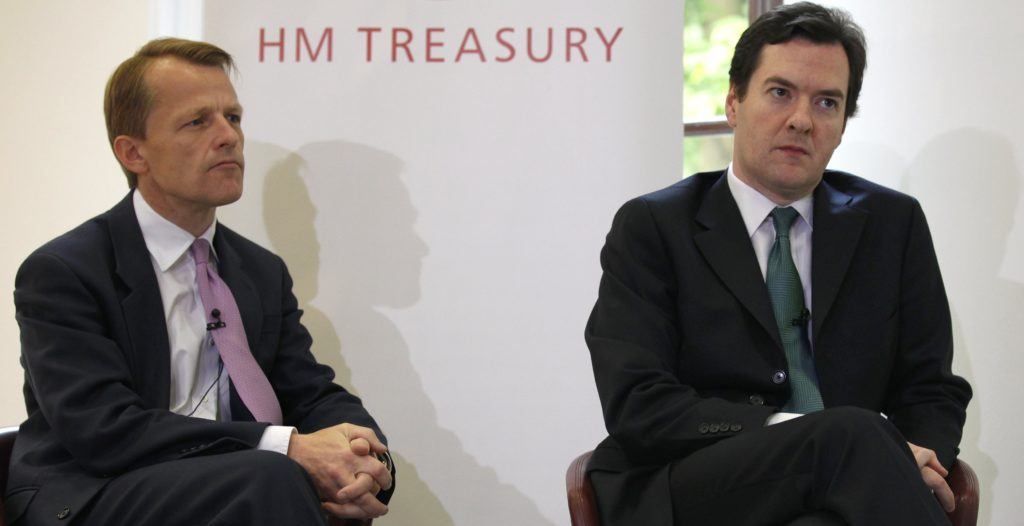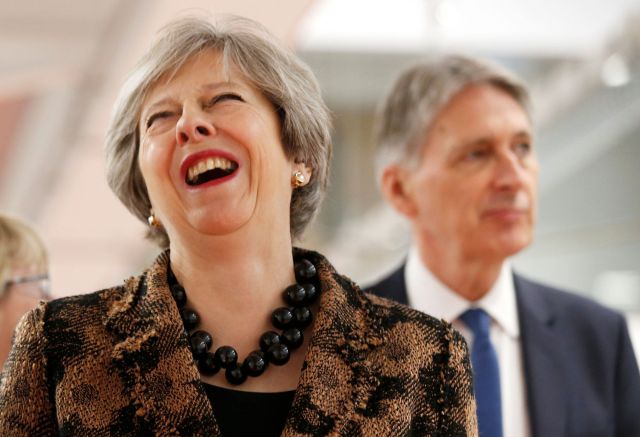Andrew Yates, PA Images

As Mr Hammond – a cautious man by instinct – reviewed his Budget options over the last few weeks, the case for a modest little Budget must have seemed compelling. The independent Office of Budget Responsibility is likely to impose upon the Chancellor less favourable assumptions for future productivity growth; shrinking projected tax revenues; and a lot more red ink across Treasury borrowing projections. When George Osborne and I sat down in May 2010 to plan the Coalition’s deficit reduction strategy, we dared to hope that by 2015 we might be in a position to deliver a “giveaway” Budget. After this Wednesday, that 2015 date may need postponing by a whole decade.
And at least in those days of Coalition, the government had a healthy parliamentary majority to push through unpopular measures. This Chancellor now faces being held to parliamentary ransom by angry Brexiteers, populist Tory backbenchers, and of course those hard men (and women) of the Democratic Unionists. In short, Philip Hammond has nothing to “giveaway”, and limited capacity to raise revenue.
“The Chancellor should be applauded”, Hammond himself told the Cabinet in 2012, for “finding a few old bones and cans of soup in the back of the kitchen cupboard and turning them into a rather impressive dish”[1. David Laws, “Coalition”, 2016.]. Will Hammond (2017) be a re-run of Osborne (2013)?
However tempting, timidity would be a great mistake for the economy, for our social cohesion, for Mr. Hammond, and indeed for his party. Mr. Hammond needs to be bold – but to do this he also needs to be clever.
There are in my view four key tests of boldness:
- action on the budget deficit;
- decisions on public spending;
- the strategy for “ordinary working households”; and
- the preparations for Brexit.
Let us take each in turn.
The temptation on government borrowing will be to be timid at best, or dangerously profligate at worst. With the longer term borrowing figures likely to be inflated by the downward revision to productivity, Hammond could simply push the date of a balanced budget out even further or “go for broke”, by making a virtue of “borrowing to invest”.
But now is not the time to go “weak and wobbly” on the ambition to wipe out the deficit. The UK needs to restore strength to its public finances before the next downturn, and before the adverse fiscal effects of an ageing population begin to bite. And a fiscal boost is hardly what the economy needs at a time when (rightly or wrongly) the Bank of England has delivered its first notching up of interest rates for a decade. A bold Chancellor would respond to deterioration in longer term borrowing (the numbers for this year and next are likely to be fine) by raising more in tax revenue beyond 2020 (avoiding near term political pain and parliamentary risk) – by targeting those reliefs and allowances of most advantage to those on higher incomes. Meanwhile, the Chancellor should commission a review of government investment spending to identify that which truly yields a real return to the Exchequer (such as spending on housing and transport schemes). In the long term, a new fiscal rule allowing borrowing on such productive investments (but not on all public sector capital projects) would make sense.
That takes us to “test two” – public spending. It is obvious that there are at least two major priorities which need attention. The first is the NHS. The NHS was well funded by Labour prior to 2010, so when the Coalition put the brakes on spending, the health service could absorb the austerity for a few years. But ever since 2013, NHS service standards have been slipping, and health spending clearly now needs to grow again materially each year to meet inflationary pressures and higher demand, including from an ageing population. With the exception of Jeremy Hunt and NHS Chief Executive Simon Stevens, nobody in this government shows any sign of understanding that the NHS is heading for a brick wall very, very, fast. An extra £1bn here or there, drip fed out over the next few years, simply won’t make much difference. Unless the NHS receives a bold, multi-year, settlement in which real spending grows at somewhere between 2% and 4%, there will be serious consequences both for patient health and eventually for the government’s political health.
Housing needs greater priority too – which at last seems to be recognised. This is not just about money, but money is almost certainly part of the solution. And if the government’s target of 300,000 homes per year is to be taken seriously, Mr. Hammond must think big and be bold.

Test three is about those “ordinary working families” or the “just about managing”, or whatever the slogan now is. Remember them? They were supposed to be Theresa’s May’s great political priority, until someone realised that the government simply hasn’t got a clue what policies might help or much enthusiasm to make a difference. But what could be done? Plenty. Plenty that could actually be targeted very well. Why not raise the starting point at which low paid workers pay national insurance contributions? It’s currently barely above £8,000 per year. And raise the rates a bit on higher earners to claw back the money. Next, how about making council tax – that miserable, regressive, tax – a bit less regressive? Cut council tax by 25% for smaller properties – this will particularly help those on lower pay in work (who cannot claim council tax benefit). And with inflation higher than expected, how about moderating the Osborne inspired benefit freeze, that hits the low paid working and non-working families alike, and which will if unchecked propel poverty rates higher. Could any of this be afforded? Of course it could – Chancellors have a huge range of revenue options if they dare to be bold. And would not a truly bold Chancellor in a government that really cared about “ordinary families” prioritise these types of measures, as against existing plans to target inheritance and savings (ISA) tax cuts on relatively wealthy citizens?[2. See my September piece for UnHerd in which I explore these options at greater length: “The low-paid get a lot of words from politicians. Here’s a plan to give them higher incomes.”].
And finally, there is Brexit. Now, we know that Mr. Hammond is no enthusiastic Brexiteer. I suspect his views about the costs of EU departure are similar to those of former Treasury Permanent Secretary Sir Nick Macpherson, who made an interesting speech on the subject last week. But Brexit still seems likely to happen, and the Chancellor needs to present an appealing and plausible vision of our trading future, to encourage investment and help retain businesses most at risk of moving offshore. Cancelling the £5bn per year of badly targeted future cuts in corporation tax would provide some useful revenue to target more effectively at Brexit-sensitive sectors.
***
The Chancellor may, of course, have decided to be much less daring than all this. He will know that it is easy to produce a Budget which looks “bold” and “exciting” for a day – all you need is the odd, crowd-pleasing, rabbit from the hat, paid for by a low risk package based on those trusty Treasury favourites – “tax avoidance” and “departmental underspends”. And it would be easy, too, to find reasons to justify a “steady as she goes”, content-free, Budget. But on Wednesday, for the country’s sake, Mr Hammond needs to be genuinely bold. If he fails this test, his party may soon be looking for someone else to occupy 11 Downing Street, and – in time – Number 10 too.









Join the discussion
Join like minded readers that support our journalism by becoming a paid subscriber
To join the discussion in the comments, become a paid subscriber.
Join like minded readers that support our journalism, read unlimited articles and enjoy other subscriber-only benefits.
Subscribe